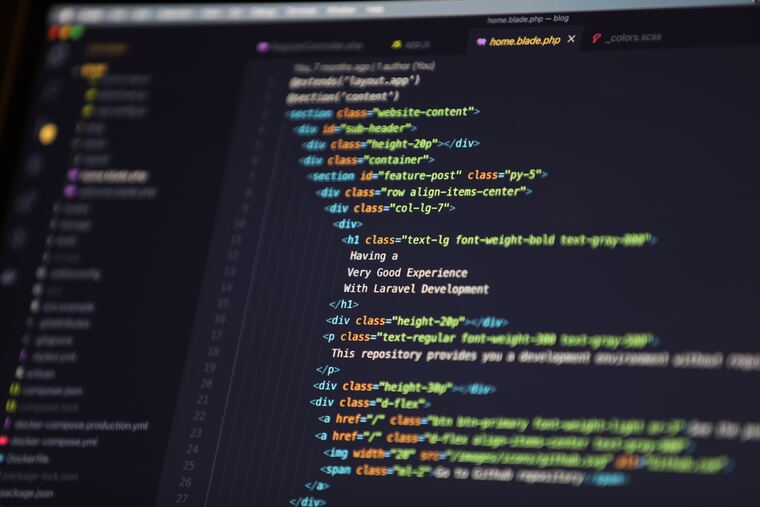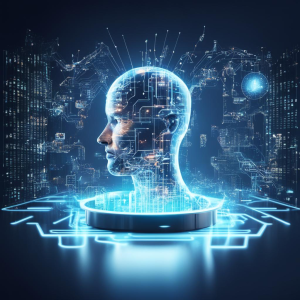In today’s fast-paced digital era, artificial intelligence has emerged as a game-changer for businesses across various industries. Its transformative capabilities are reshaping the way companies operate, leading to improved efficiency, better decision-making, and enhanced customer experiences. While AI has already made significant strides in the consumer market, its potential in the B2B marketplace is equally promising. We will delve into the depths of AI’s impact on B2B marketplace dynamics and explore how it is revolutionizing business interactions and transactions. So buckle up and get ready to dive into a world where cutting-edge technology meets thriving commerce!
Types of AI used in B2B Markets
Artificial Intelligence (AI) has made its way into various industries, including the B2B marketplace. In this ever-evolving digital landscape, businesses are leveraging the power of AI to streamline their operations and make smarter decisions.
One type of AI commonly used in B2B markets is machine learning. By analyzing vast amounts of data, machine learning algorithms can identify patterns and make predictions without being explicitly programmed. This enables businesses to gain valuable insights into customer behavior, optimize marketing strategies, and improve overall operational efficiency.
Another type of AI utilized in B2B markets is natural language processing (NLP). NLP allows computers to understand human language and extract relevant information from text or speech. With NLP-powered chatbots, businesses can provide instant support to customers, answer queries promptly, and enhance the overall customer experience.
Robotic process automation (RPA) plays a crucial role in streamlining repetitive tasks within B2B marketplaces. These intelligent software robots automate manual processes like data entry or invoice processing, reducing errors and freeing up employees’ time for more strategic tasks.
Predictive analytics powered by AI algorithms helps businesses forecast market trends accurately. By analyzing historical data along with external factors such as economic indicators or social media sentiment analysis, companies can anticipate demand fluctuations or identify potential risks beforehand.
These different types of AI technologies empower B2B organizations to stay ahead in an increasingly competitive business landscape by automating routine tasks, enhancing decision-making capabilities, and delivering personalized customer experiences.

Advantages of using AI in B2B Marketplace Dynamics
AI has revolutionized the way businesses operate, and its impact on B2B marketplace dynamics cannot be underestimated. With the ability to analyze massive amounts of data in real-time, AI-powered systems can provide insights and recommendations that can drive business growth and efficiency.
One major advantage of using AI in B2B marketplace dynamics is improved decision-making. By leveraging machine learning algorithms, AI platforms can quickly process vast amounts of information from various sources, such as customer behavior patterns, market trends, and competitor analysis. This enables businesses to make data-driven decisions with greater accuracy and speed.
Another advantage is enhanced customer experience. AI-powered chatbots and virtual assistants enable businesses to provide personalized assistance to customers throughout their buying journey. These intelligent systems can understand natural language queries, offer relevant product suggestions, answer FAQs promptly, and even provide post-purchase support. This level of automation not only improves customer satisfaction but also frees up time for sales teams to focus on more complex tasks.
AI helps optimize supply chain management by predicting demand patterns and optimizing inventory levels accordingly. With predictive analytics capabilities built into AI systems, businesses can reduce costs associated with overstocking or understocking products while ensuring timely fulfillment of orders. This leads to improved operational efficiency and reduced lead times.
Utilizing AI in B2B marketplace dynamics opens doors for dynamic pricing strategies based on real-time market conditions. By analyzing factors such as competitor prices, demand fluctuations, seasonality trends,and other variables,AI algorithms help companies set optimal prices that maximize profit margins while remaining competitive.
By employing advanced algorithms that recognize suspicious patterns or anomalies,AI technology alerts businesses about potential fraudulent activities early on.
Challenges and Limitations of AI in B2B Markets
Implementing AI in the B2B marketplace is not without its challenges. One major hurdle is the lack of understanding and trust that some businesses have towards AI technology. Many are hesitant to rely on algorithms and machine learning systems to make critical business decisions.
Another challenge is the quality of data available for training AI models. Inaccurate or incomplete data can lead to biased results, which can negatively impact decision-making processes. Additionally, maintaining and updating large datasets required for effective AI implementation can be costly and time-consuming.
There are ethical concerns surrounding the use of AI in B2B markets. Some worry that automation may lead to job losses and human workers being replaced by machines. Striking a balance between leveraging AI capabilities while still valuing human expertise remains a challenge.
Technical limitations also pose challenges for widespread adoption of AI in B2B markets. The complexity and variability inherent in business transactions require sophisticated algorithms capable of handling diverse scenarios accurately.
Regulatory frameworks need to catch up with rapidly evolving technology to address potential risks associated with using AI in B2B markets, such as privacy breaches or algorithmic biases.
While there are challenges and limitations associated with implementing AI in the B2B marketplace, it is crucial for businesses to understand these obstacles so they can effectively navigate this new technological landscape.
Future Predictions for AI in B2B Marketplace Dynamics
As technology continues to evolve at a rapid pace, the future of AI in the B2B marketplace holds immense potential. With advancements in machine learning and natural language processing, we can expect AI to revolutionize the way businesses operate.
One prediction is that AI will greatly enhance customer experience by personalizing interactions and providing tailored recommendations based on data analysis. This level of customization can lead to increased customer satisfaction and loyalty.
AI algorithms will continue to improve demand forecasting and supply chain management. By analyzing historical data, market trends, and consumer behavior patterns, companies will be able to optimize their inventory levels and streamline their operations more efficiently than ever before.
With the rise of virtual assistants like chatbots powered by AI, customer support will become faster and more efficient. These bots can handle basic queries round-the-clock while freeing up human agents to focus on complex issues.
In terms of marketing strategies, AI-powered tools can analyze vast amounts of data from various sources such as social media platforms or web analytics. This allows businesses to gain valuable insights into consumer preferences and behaviors which can then be used to create targeted advertising campaigns.
Looking ahead, it’s likely that we’ll witness an increase in collaborative robots working alongside humans in manufacturing processes. These cobots are designed for tasks requiring precision or heavy lifting but still require human oversight. As a result, productivity levels may soar while workplace safety remains a priority.
While these predictions provide exciting possibilities for the future of B2B marketplace dynamics with AI integration, it’s important not to overlook potential challenges such as privacy concerns or ethical considerations surrounding automation replacing jobs entirely.
One thing is clear: the impact of AI on B2B marketplace dynamics is only beginning to unfold! The opportunities are vast – from improved efficiency in operations all the way through enhanced customer experience – making this an exciting time for businesses embracing artificial intelligence.
Conclusion
As we have explored the various aspects of AI in B2B marketplace dynamics, it is clear that artificial intelligence has a significant impact on this industry. From streamlining processes and improving efficiency to enhancing customer experience and enabling data-driven decision making, AI offers numerous advantages for businesses operating in the B2B space.
By leveraging machine learning algorithms, natural language processing, and predictive analytics, companies can gain valuable insights into market trends, customer preferences, and competitor strategies. This knowledge can be used to develop targeted marketing campaigns, personalize customer interactions, optimize pricing strategies, and identify new business opportunities.
Despite its many benefits, AI implementation does come with challenges. Data quality issues and lack of transparency can hinder accurate predictions. Privacy concerns related to handling sensitive customer information also need to be addressed.



